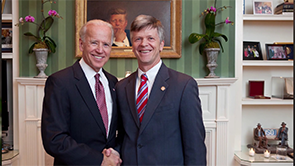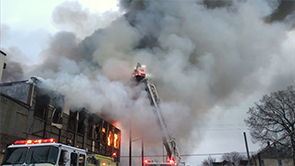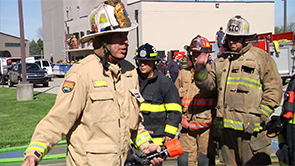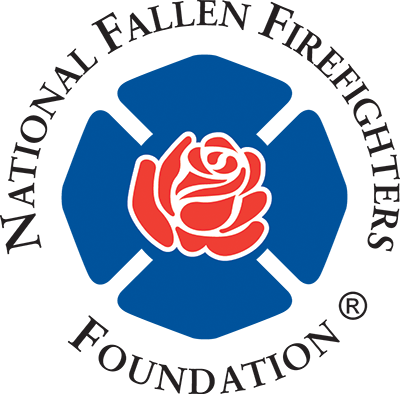Bill Webb
Bill Webb has served as Executive Director of the Congressional Fire Services Institute (CFSI) since 1995. Established in 1989, CFSI is a nonprofit, nonpartisan policy institute designed to enhance congressional awareness about the concerns and needs of the fire and emergency services. In his capacity as Executive Director, Mr. Webb works closely with members of Congress and fire service leaders on developing federal legislation and creating new federal programs designed to improve the readiness of our nation’s fire and emergency services.
Previously, Mr. Webb was the Program Manager for the Firefighter Combat Challenge. He also served in the first Bush Administration as a special assistant to cabinet secretaries at the U.S. Departments of Education and Labor.
Mr. Webb is an honorary member of the Vienna (VA) Volunteer Fire Department, the International Association of Fire Firefighters’ Local 36 and the Delaware Volunteer Firefighters’ Association. In 2009, he was named the recipient of the Edward H. McCormack, Jr. Spirit of Excellence Award by the FEMSA/FAMA Government Affairs Committee and the recipient of the Chairman’s Award by the Volunteer and Combination Officers Section of the International Association of Fire Chiefs.
Mr. Webb received a Bachelor of Science Degree in Business Administration from Oregon State University.
View All VideosYou may also like
Dr. Denise Smith describes the bright future and the change in the fire service over the last ten years, with the adoption of evidence-based research and the available FIRE ACT grant funding. These partnerships and resources help them better serve their communities and being safe and on the...
Sudden cardiac events are the leading cause of firefighter line-of-duty deaths, but it also leads to early retirements and non-fatal events on the fireground or during operations. Dr. Smith’s works to detect cardiovascular disease and managing the risk factors we can decrease the burden of...
Chief Ronald Jon Siarnicki recalls a call from early in his career as a fire officer, where a victim was trapped in a well. Not only did that incident involve an out of the box solution, but it involved a great deal communication with the victim, and later on with the rescuers when they reviewed...
Chief Ronald Jon Siarnicki says that becoming a leader in the fire service involves three things: education, staying current with the developments in the fire service, and personal skills are all important. He also urges future leaders to identify where their “line in the sand” is.











Add comment